What You Didn't Know About Amazon's Work Culture
Amazon's success is unquestionable — but what's it really like to work there?

Amazon's success is unquestionable.
Starting as an online bookstore, the e-commerce giant has scaled its operations, created new trends in the industry, and increasingly diversified its products, becoming a one-stop shop for everything from groceries to computers. Many current and former employees have attributed this success to the innovative ideas of the company's CEO Jeff Bezos.
But what is it really like to work for this booming tech giant?
Two Pizza Rule
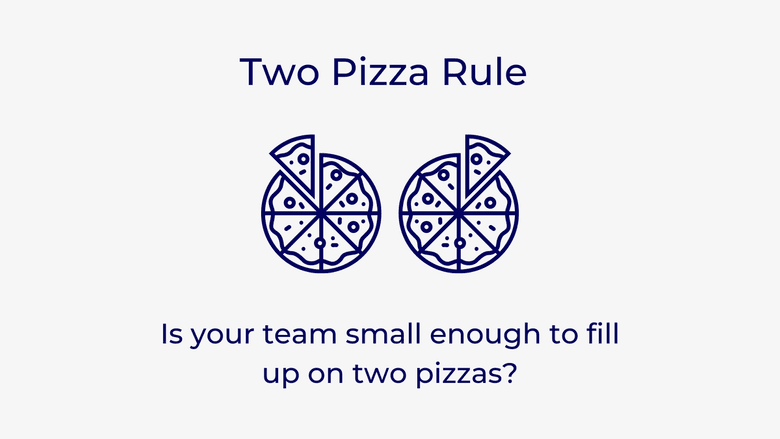
Possibly the most notorious human resources innovation coined by Amazon's CEO Jeff Bezos is their two pizza rule. This unique principle impacts Amazon's entire company culture via team makeup: it stipulates that each in-house team working on company growth must be small enough to be fed by only two pizzas.
This allows Amazon employees to maintain autonomy over their projects from end-to-end, encouraging direct communication and avoiding lengthy meetings. Small teams have also served to boost productivity and satisfaction with work culture.
Although the small team principle permeates the organization, each division still holds its own microclimates that can have a massive impact on your experience. Be sure to ask about them when talking with a recruiter.
PIP
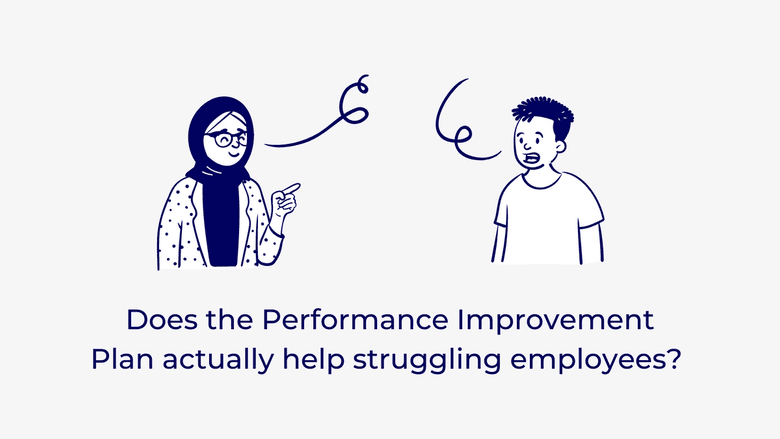
One of the most common grievances held by current and former Amazon employees is their PIP, or performance improvement plans.
PIP is the product of the purposeful Darwinism. It's an acronym for the annual performance assessments, which cull together underperforming staff members for a reassessment of their standing within the company.
In 2015, the New York Times published an article criticizing Amazon. Within it, they described being placed into a PIP program as "Amazon code for 'you're in danger of being fired.'"
In this bruising atmosphere, team managers hold the power to place members into PIP. In the past, they have abused this power, using it to edge out employees they don't enjoy working with or that they deem detrimental to their goals. According to a 2014 Gawker report, PIP programs didn't even offer training or coaching to improve employee performance.
However, in early 2017, Amazon recognized the failings of their PIP system and rolled out a new coaching program for underperforming employees called Pivot.
The program pairs underperforming employees with Career Ambassadors, who give guidance and support for a fixed period of time. According to an email obtained by Business Insider,
"Pivot is a program for employees who show a sustained period of underperformance, despite coaching and support. The program provides employees with options to improve performance, voluntarily leave Amazon with severance, or appeal their manager’s decision to place them in Pivot."
Still today, PIPs are a major contributor of disdain amongst employees - here are some of the statistics you should know:
- 10% of employees receive a PIP
- 5-7% get labelled as “URA”, unregretted attrition
- 80% of stock compensation vests in years 3 and 4
- The median employee tenure is 1.4 yrs
With these major trends in Amazon's work culture identified and explained, let's look at insights from Amazon employees working within the company's aforementioned microclimates. From current and former employees comments made on Glassdoor, Quora, and Team Blind, the influence of Amazon's high standards on the culture of these teams is evident.
Good Teams @ AMZN
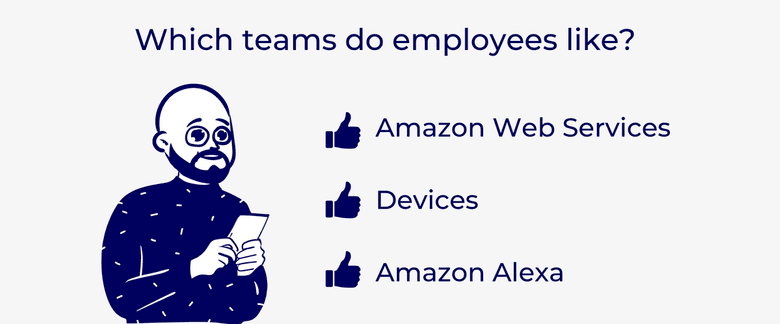
Amazon Web Services (AWS)
Amazon Web Services is a subsidiary of Amazon that provides on-demand cloud computing platforms and APIs to individuals, companies, and governments. As described by current and former employees, AWS is nearly void of interior politics. This means you won't have to worry about being managed out of your job by managers whose leadership principles don't align with yours. However, the work-life balance isn't superb-- most employees are expected to be on-call, especially if their job is client-facing.
Devices
Employees claim that the work-life balance on the Amazon Devices team is one of the best in the company. Though your manager can have an effect on your experience, employees say the Devices team has plenty of new projects with negligible on-call requirements. Promotions also reportedly move faster, so more members are satisfied with their career trajectory.
Amazon Alexa
Amazon's culture seems to be at its best on teams designing the virtual assistant AI technology, better known as Amazon Alexa. Problems the teams tackle are described as challenging and interesting, and many employees have good things to say about their managers. Although, one employee warns of two teams within the organization, the Smarthome GUI and Behaviors GUI, that cast aside long-term goals for short-term gains.
Bad Teams @ AMZN
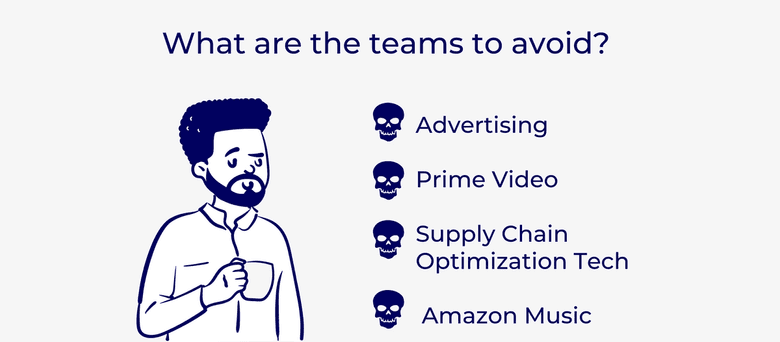
Advertising
A former employee described the Advertising team, based out of Boulder, CO as having a "hire and fire rinse repeat culture." Another identified minimal career growth opportunities, but mentioned a low stress environment.
Prime Video
The Prime Video team mainly focuses on curating content for Amazon's streaming service. Employees describe a toxic atmosphere, a lot of burnout, and movement out of the organization. One Amazon employee, who worked in collaboration with the team, even described being blackmailed.
Supply Chain Optimization Technologies
Amazonians working in SCOT paint a picture of a low morale, high turnover work environment, especially in the Forecasting and Inventory team. The Inventory Planning team has reportedly been stuck on the same project for four years, with leadership blaming everyone but themselves for it.
Amazon Music
Amazon's music streaming service seems to be an overwhelming "meh" for most of its employees. Steady losses of money and growth issues have caused many of the 'good' employees to leave, but it does stand as the #3 service in the market, so its potential remains.
In Conclusion
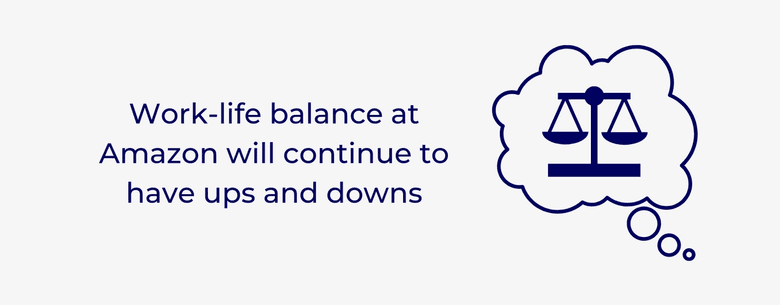
Though this list doesn't cover all of the teams at Amazon, these teams had the most vocal employees online. It is also important to note that your experience on any team within Amazon will be heavily impacted by your coworkers and manager. Therefore, we acknowledge that everyone's experience is bound to be unique.
As the Covid-19 pandemic drives Amazon's stock higher, the company's high standards for its employees (seen through the two pizza philosophy and PIP programs) continue to create both problems and benefits for employee's work-life balance.
One thing is certain: Amazon will continue to disrupt the e-commerce, streaming, and other industries as it boasts continuous growth and attracts top talent from across the world.
👉 Think you have what it takes? Click here to learn about the Amazon Interview Prep Course
The information provided herein is for general informational purposes only and is not intended to provide tax, legal, or investment advice and should not be construed as an offer to sell, a solicitation of an offer to buy, or a recommendation of any security by Candor, its employees and affiliates, or any third-party. Any expressions of opinion or assumptions are for illustrative purposes only and are subject to change without notice. Past performance is not a guarantee of future results and the opinions presented herein should not be viewed as an indicator of future performance. Investing in securities involves risk. Loss of principal is possible.
Third-party data has been obtained from sources we believe to be reliable; however, its accuracy, completeness, or reliability cannot be guaranteed. Candor does not receive compensation to promote or discuss any particular Company; however, Candor, its employees and affiliates, and/or its clients may hold positions in securities of the Companies discussed.
